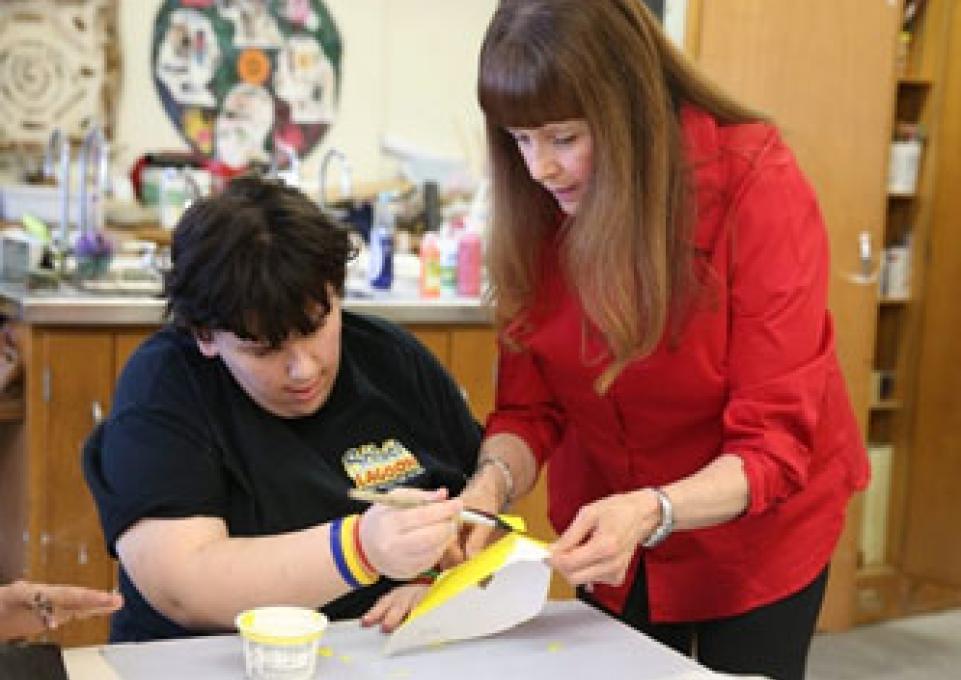
The career of Lucy Andrus, professor of art education, has come full circle.
Thirty-four years ago, Andrus received a special projects grant from the John F. Kennedy Center for the Performing Arts to create an innovative program using the arts to reach students with disabilities in kindergarten through 12th grade.
Later this month she will travel to Washington, D.C., to participate in “Examining the Intersection of Arts Education and Special Education: A National Forum” held July 26-27 at the Kennedy Center.
Andrus is one of 50 individuals the Kennedy Center invited, most of whom are educators at the university level. Invitations are based on the participants’ national reputation via innovative practice, juried publications, and conference presentations.
A member of the Buffalo State faculty since 1982, Andrus teaches in the Art Education Department, coordinates the art therapy minor, and serves as the Art Partners program founder and director. Her scholarly interests include providing art education to at-risk children and those with special learning needs.
"I'm excited about this opportunity and look forward to making a significant contribution to this discussion," Andrus said. "It's likely that results of this forum will affect national policy in regard to the provisions of arts education for diverse individuals with unique learning needs."
In addition to college professors, K-12 teachers, members of the Department of Education, parents of children with disabilities, and students with disabilities are participating in the forum. During the two days, the group will discuss current knowledge and promising practices at the intersection of arts education and special education; address issues and challenges centered on delivering arts education to students with disabilities; and create an action plan with measurable outcomes.
Afterward, Andrus said she intends to brings this conversation back to the Buffalo State campus and explore the possibilities of greater intersection and collaboration between art education and the special education and general education programs.
"There is need for greater awareness and collaboration among these disciplines," she said, "as we examine and assess our own efforts to prepare teachers for twenty-first century pedagogical practice."
